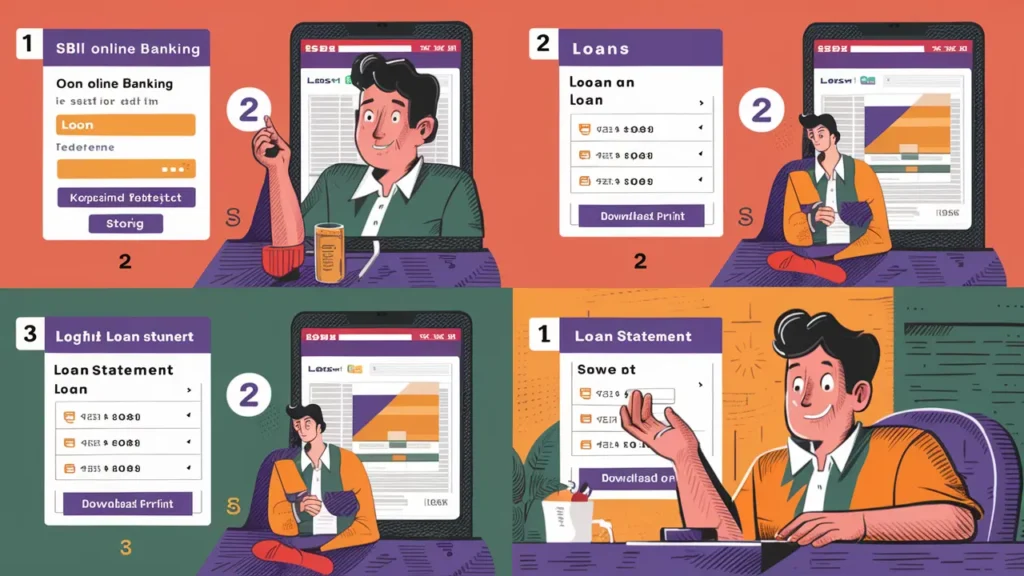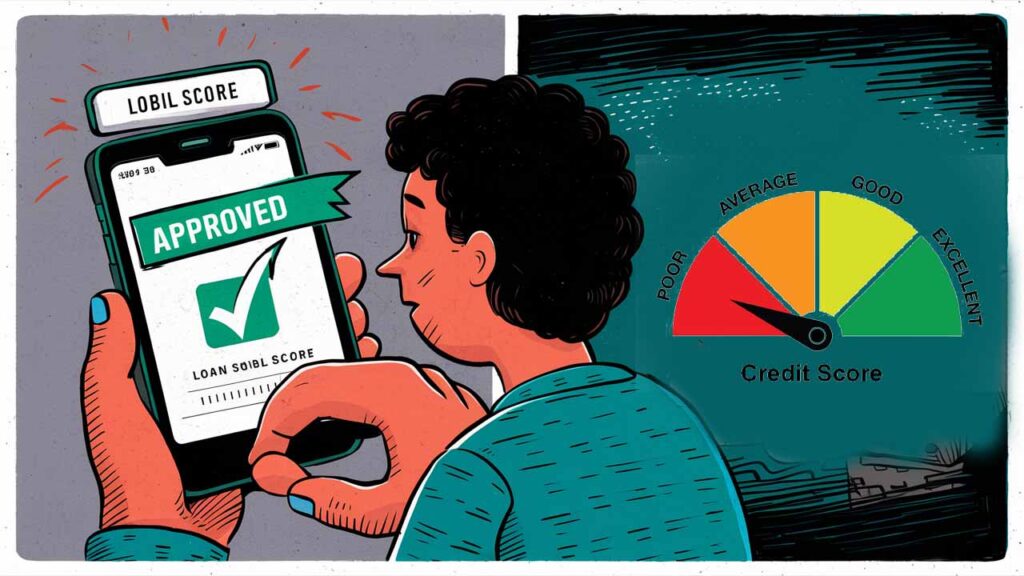Summary
When it comes to mutual fund investment, notably in the case of Systematic Investment Plans (SIPS), loan settlements can prove to be injurious to your financial health. Settling the loan by paying short of the entire amount is detrimental to the credit score, and you may find yourself in trouble in the future to taking loans. This affects the overall wealth position of the person. This extends to other issues, including lower disposable income, failed auto-debits, halted investment growth, and loss of financial discipline. Redeeming the mutual fund to pay the loan is detrimental to long-term wealth creation, attracts tax, and undermines financial planning. Instead of redeeming an investment, restructure the loan, rebalance the budget, or employ partial redemptions. Always keep the long-term effect in sight and consult a financial planner to preserve the credit score as well as the investment target.
Introduction
While offering short-term relief, loan settlements can permanently influence the state of your finances, specifically on your mutual fund holdings. The majority of consumers are not aware of how loan payment affects long-term financial goals or Systematic Investment Plans (SIPS). While debt payment may seem like an immediate fix to cash flow insufficiency, it hurts your credit record, halts the growth of investments, and short-circuits the capability to be fiscally accountable. Here, we shall explore the influence of loan settlements on mutual funds, the disadvantages of redeeming investments to set off debt, and other ways to preserve your funds during loan management. Being aware of the effects is how you can help safeguard future funds as well as make wiser financial decisions.
How do Loan Settlements Impact Investment for Mutual Funds?
Understanding the Link Between Loan Settlements and SIPS
While it may seem like a relief to your finances, a debt settlement can go on behind your back to impact your long-term investment goals. Most customers do not realise how their mutual fund SIPS (Systematic Investment Plans) get altered when they settle a loan. If your plans are about generating wealth, sending your child to school, or retirement, your SIPS largely rely on your credit status and financial health.
In a loan settlement, what happens?
You are paying less than the entire outstanding balance when you repay a loan to a bank or another financial institution. While it may get you through your short-term cash crunch, it appears on your credit report as “settled,” not “closed.” Your credit rating will be negatively affected.
Even though it impinges on your mutual fund SIPS in millisecond terms, a worse credit score can lessen your prospects for future loans.
How Loan Settlement Impacts SIPS on Mutual Funds
Lower Disposable Income
After a settlement, you may be refused or receive higher interest rates when applying for credit or new loans. If you are already under financial duress, your ability to retain monthly SIP payments unchanged may be impacted.
Auto-Debit Failures
Your SSIPScan fail if SIPS are linked to your bank account, and inadequate financial planning after settlement results in a low balance due to loan pressure. Repeated failures might lead to the cancellation of the investment plan.
Stopped Investment Growth
Missing even a couple of SIPS can halt the compounding process. SIP possesses tremendous strength in regular investment. Missed months alter your long-term goals and delay the formation of money.
Impact on Financial Discipline
Generally, repaying a loan leads to unstable finances. In such a situation, maintaining discipline with SIPS becomes tough. Halting SIPS and then resuming them at the same pace may prove to be difficult and may lead to your financial goals being pushed back.
What You Can Do
Consider how the loan settlement impacts mutual fund SIPS. Think about restructuring the loan first, then selecting a settlement. Rework your budget to make sure your SIPS won’t suffer even if settlement is inevitable. You can also reduce your SIP level rather than stopping it.
To maintain your SIPS on course even during challenging times, continuously check your credit score, review your investment goals, and consult a financial counsellor.
Should You Use Mutual Fund Withdrawals to Settle Loans?
Understanding the Urge to Redeem Investments
Many seek fast fixes when debt pressure rises. Redeeming mutual funds for loan settlement is among the most often used choices. Mutual funds seem to be a handy approach to manage pressing debt issues since they are liquid and easy to withdraw from.
However, it’s crucial to know how this action could influence your long-term financial situation before deciding on it.
The True Cost of Redeeming Mutual Funds
Death of Long-Term Development
Mutual funds are best kept unaltered for an extended time. Early withdrawal of them can stop the compounding impact of creating wealth over time. Redeeming mutual funds for loan settlement could fix a temporary problem, but it also forfeits the possible returns your assets could have produced going forward.
Implications for Taxes and Exit Load
Redeeming mutual funds can have tax consequences. Your investment’s length will determine whether you must pay long-term or short-term capital gains tax. Further lowering your earnings are some mutual funds with exit loads, should you withdraw before a designated period.
Impact on Financial Goals
Early redemption of your mutual funds—should they be linked to significant life events like a child’s schooling, house purchase, or retirement—may postpone or even completely derail those plans. Even if the loan is paid off now, this can cause further financial trouble down the road.
Options to Think About Before Using Mutual Funds Redeeming
Look at various choices, such as modifying your loan, extending the repayment term, or asking your lender about temporary assistance, instead of deciding to redeem mutual funds for loan settlement. Sometimes it may be better to use a lower-interest personal loan to pay back a high-interest one than to sell up your assets.
One further choice is applying a portion redemption strategy. If so, keep the rest of your mutual fund assets invested while withdrawing just a tiny bit. In this sense, you strike a mix between future financial stability and debt payback.
Staying Focused on Long-Term Stability
While debt should be paid off, maintaining your money is just as vital. Always consider the long-term effects of financial choices. Last resort, not first choice, should be redeeming mutual funds for loan settlement.
The Hidden Risks of Loan Settlement for Long-Term Investors
Loan Settlement Looks Easy, But Comes at a Cost
Settling a debt may appear to be the quickest method out of financial trouble for investors. While it provides short-term relief, there are deeper consequences that perhaps are not obvious at initial glance. Beforeo initiating any action that impacts credit status or long-term investment objectives, one should first be knowledgeable about investor loan settlement risks.
What Happens at a Loan Settlement?
Loan settlement is where the lender agrees to accept a smaller amount than the original loan amount. Your credit history indicates the loan as “settled” instead of “closed” once this has happened. This indication informs future lenders that you weren’t able to repay the loan in full.
Key Loan Settlement Risks for Investors
Damaged Credit Profile
A damaged credit rating presents one of the key loan settlement risks to investors. This makes it harder to get credit card or loan acceptance for future ventures. The risk label appended to your profile indicates that even if authorised, the interest rates will be much greater.
restricted access to new credit
A poor credit report may make it harder for you to get funds for strategic investment or in a time of crisis. Oftentimes, financiers require finance to tap into opportunities; the settlement of loans can restrict that access.
Imbalanced Investment Control
When a loan is repaid, monthly financial planning at times gets derailed. Mutual fund SIPS, stock buying, or retirement fund contributions by regular givers can be tougher to sustain based on squeezed budgets or the absence of lender cooperation.
Forced Redemption of Investments
Often, investors sell long-term assets or redeem their mutual funds to fill any final gaps in finances. This puts off long-term goals for accumulating wealth and can cause years-long setbacks from which to rebound.
Think Before You Settle
Understanding loan settlement risk for investors is more than mere credit score analysis. It involves long-term financial conduct, foregone growth opportunities, and prospective constraining flexibility. While loan repayment may cure immediate problems, in the long run, it will yield much more.
Consider carefully alternatives such as loan modification, partial payments, or consulting a professional financial advisor before making a settlement commitment.
Loan Settlement vs Loan Foreclosure: What’s Better for Investors?
Making the Right Choice for Your Financial Future
Investors often have to make a tough decision when dealing with debt: pay off the loan or foreclose it. While both alternatives may appear to solve the same problem, their impact on your credit score and long-term investment planning might be slightly different. Making informed financial choices relies on understanding the differences between loan foreclosure and settlement for investment planning.
What is Loan Foreclosure?
Payment of the entire outstanding loan amount before the scheduled closing date is referred to as loan foreclosure. This helps you to tidily shut the loan account debt-free. Foreclosure reflects fiscal responsibility to subsequent lenders and increases your credit score.
What is Loan Settlement?
Typically, in answer to financial hardship, loan settlement is the payment of less than the true outstanding loan balance. The lender records the account as “settled, not closed,” on your credit report even though they accept this as the final payment. This will damage your creditworthiness for years.
Loan Foreclosure vs Settlement for Strategic Planning
Impacting Credit Score
Your credit report either benefits or loses from foreclosure, either positively or negatively. It shows your prudent financial management. Conversely, settlement can lower your credit score and make your credit application process for future investment opportunities more difficult.
Access to Future Loans
Real estate, business, or other asset loans are typical requirements of investors. Having a clean credit record after foreclosure allows easy loan approval with improved terms. Settlement can restrict your ability to grow wealth by borrowing by resulting in loan denial or increased interest rates.
Financial Discipline and Flexibility
Foreclosing a debt requires discipline, planning, and budgeting—all being the basic behaviours of sound investors. Although paying off a loan might be temporary relief, it generally demonstrates poor financial control, which would impact your confidence and future intentions.
Factors Affecting Investment Goals
Long-term goal-oriented investors ought to have good credit. By shutting down debt neatly, foreclosure benefits those goals. Settlement could make you forego opportunities for expansion or cash out early due to poor credit or limited finances.
Select What Facilitates Your Future
When comparing foreclosure of a loan to settlement for investment planning, foreclosure favours healthier long-term growth and financial well-being. If you can manage it, investors almost always find the preferred choice to be foreclosure.
Impact of the settlement of a loan on investment suitability and credit score
Why Your Loan History Matters More Than You Think
Although they provide short-term financial relief, loan settlements have a long-term impact. Most investors are not aware of how such decisions affect their credit status or subsequent investment decisions. Whoever wants to make steady financial fitness must first recognise the impact of loan settlement on credit score investment.
A loan is settled; what happens?
Paying less than the total amount due with the lender’s consent is what paying off a loan is all about. Your credit report indicates “settled,” not “closed,” on the account. While this may appear to erase the debt, it creates a negative mark that lasts for several years.
How Loan Settlement Impacts Your Credit Score
Decrease in credit score
Typically, a debt settlement leads to a significant decline in your credit score. Credit bureau settlement is a sign of a symptom of failure to pay back, hence diminishing your credibility as a borrower. A single settlement entry may adversely impact your score and be readily visible for a considerable length of time.
Lower Chances of Credit Approval
A poor credit rating may make banks and other lending institutions hesitant to approve your credit card or future loan requests. The conditions can be worse even if approved, with lower restrictions and higher interest rates.
The Investment Impact You Can’t Afford to Ignore
Limited Access to Investment Credit
Loans are utilised by numerous investors to finance portfolio development, real estate acquisition, or company growth. Having a bad credit rating reduces your chances of availing such loans, thus your ability to grow wealth or capitalise on opportunities.
Required to sell investments
Might loan requests be rejected due to settlements in the past? Investors might be forced to sell long-term assets or redeem mutual funds to raise funds. Your long-term outcomes might be impaired as a result, as well as your financial strategy.
Loss of Investor Confidence
Regular loan payments help to develop confidence and discipline. A debt settlement could cause uncertainty inthe next financial decisions, which would cause missed chances or too cautious behaviour, slowing down the generation of wealth.
Protect Your Credit to Protect Your Investments
Real and permanent is the impact of the investment on the loan settlement credit score. Before a settlement decision, every investor should consider options like part-payment or restructuring of loans seriously. Keeping creditworthiness intact ensures your future finances and expands your investment options.
Rebuilding Your Investment Portfolio After a Loan Settlement
Life After Settlement: A Fresh Financial Start
While temporary relief is to be found from loan settlements, they often can leave investors with damaged credit and knocked off course financially. Thankfully, one may recover. Rebuilding permanent financial stability and control is built on knowing the way to revive a portfolio in the wake of loan settlement.
Determine Where You Are Currently
Understand your financial and credit position at the present moment before taking action. Verify outstanding debts, check your credit rating, and list any final investments. This assists you in viewing clearly what you can work with and what needs to be created from scratch.
Set New Investment Goals
Begin With Clear Priorities
Your spending needs can be reassessed after the settlement of loans. Before a return to hard-core investing, focus on developing a security nest out of urgent funds and general insurance. You may progressively increase investments as your more immediate needs are provided for.
Identify Reasonable Goals
Make sensible, small goals. Begin with safer, regular investment options rather than taking high-risk investments. As you proceed, this promotes stability and trust.
Rebuild with Sensible Steps
Start with SIPS
Gaining your investing journey is far simpler by way of systematic investment plans (SIPS). They allow you to regularly invest small sums and steadily build wealth without deviating too far from your resources.
Pay attention to Diversification.
Invest none of your funds in one asset class. Diversify between low-risk instruments, fixed-income securities, and mutual funds. Although increasing the potential for returns, a diversified approach reduces risk.
Track and Fix
Monitor your investments frequently to keep yourself updated. As your finances improve, increase your contributions incrementally. Reviewing your portfolio every few months ensures that it conforms with your goals.
Establish Credit In Addition To Investing
Don’t ignore your credit status even as you rebuild your portfolio after loan settlement. Keep credit utilisation low, pay bills on time, and avoid unnecessary debt. A good credit score enhances your future loan or financial assistance access when required.
Conclusion
Although loan settlement offers quick financial comfort, its effects on the mutual fund investment and long-term financial security could be rather less. Loan settlement could help you get back on track from bad credit ratings to changed systematic investment plans and stopped investment growth. Examine alternatives such as loan modification, budget adjustments, or redemptions as batches rather than redeeming the mutual funds and halting investing is essential. Adhering to financial discipline, tracking credit scores, and taking professional suggestions shall assist you in safeguarding your wealth and keeping an eye on long-term objectives. Calculated decisions at present will aid in safeguarding the financial future and ensure the path of wealth creation is kept simple.
FAQ’s
Ans: The answer is that a bad credit rating and financial load will cause a settlement of the loan to result in missed SIP contributions and slowed investment growth.
Ans: Redeeming the mutual funds compromises the long-term wealth building and could result in taxes and exit loads.
Ans: Loan settlements usually lower your credit score, which makes it more difficult to obtain loans or credit at reasonable rates down the road.
Ans: To guard the investments, think about re-pricing the loan, re-casting the budget, or making partial redemptions.













